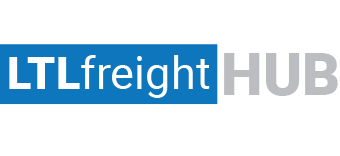The Transformative Power of AI in LTL Freight Quoting
Revolutionizing LTL Freight Quoting: The AI Advantage
In the ever-evolving world of logistics and transportation, the adoption of artificial intelligence (AI) is reshaping the landscape of Less-Than-Truckload (LTL) freight quoting. This revolutionary technology is poised to play a critical role in enhancing quoting processes, directly engaging customers, normalizing data, and ensuring information accuracy. In this essay, we will delve into the profound impact of AI on LTL freight quoting and how it is set to redefine the way businesses and customers interact with the logistics industry.
1. Direct Customer Engagement: A Paradigm Shift
Traditionally, LTL freight quoting involved a somewhat convoluted process of communication between shippers, brokers, and carriers. Customers would need to request quotes through intermediaries, leading to delays and sometimes miscommunication. However, AI is ushering in a paradigm shift by enabling direct customer engagement in the quoting process.
Enhanced User-Friendly Interfaces
AI-powered quoting systems often feature user-friendly interfaces accessible via web applications or mobile apps. Customers can input shipment details, such as dimensions, weight, pickup, and delivery locations, with ease. This direct engagement not only empowers customers but also expedites the quoting process.
Instant Quotes at Your Fingertips
AI algorithms leverage historical data and real-time market rates to generate instant freight quotes. Customers no longer need to wait for brokers to provide estimates, as they can obtain accurate quotes within seconds. This immediacy enhances the customer experience, allowing for quicker decision-making.
Customization and Transparency
AI-driven systems also enable customers to customize their shipping preferences, choosing from various service levels, transit times, and carriers. Additionally, customers gain transparency into pricing, empowering them to make informed choices based on their specific needs and budget constraints.
2. Data Normalization: Unifying the Complex Landscape
The freight industry is replete with diverse data sources and formats, making it challenging to standardize information for accurate quoting. AI’s role in data normalization is pivotal in overcoming this complexity.
Harmonizing Data Sources
AI systems are equipped to harmonize data from multiple sources, including carriers, shippers, and third-party databases. This data consolidation ensures consistency and accuracy in the quoting process.
Optimizing Data Quality
Through machine learning algorithms, AI can identify and rectify data errors, such as incorrect addresses or product descriptions. This optimization reduces the likelihood of errors and discrepancies in quotes, enhancing reliability.
Streamlined Data Integration
AI also streamlines data integration across the supply chain. It seamlessly connects with other systems, such as transportation management systems (TMS) and warehouse management systems (WMS), ensuring a unified flow of information.

3. Information Accuracy: The Bedrock of Trust
In the world of freight, trust is paramount. Customers rely on accurate information to make decisions, and AI plays a crucial role in ensuring the veracity of data used in LTL freight quoting.
Real-Time Data Updates
AI systems continuously update data in real time. This includes factors like fuel surcharges, weather conditions, and carrier capacity. As a result, customers receive quotes based on the most current and accurate information available.
Risk Mitigation
Inaccurate quotes can lead to operational and financial setbacks. AI employs predictive analytics to identify potential risks, such as shipment delays, and adjusts quotes accordingly. This proactive approach minimizes surprises and fosters trust between customers and logistics providers.
Audit Trails and Compliance
AI systems maintain detailed audit trails of each quote, including the data sources and algorithms used. This transparency enhances compliance with industry regulations and provides an additional layer of assurance to customers.
4. Leveraging AI for Competitive Advantage
The adoption of AI in LTL freight quoting provides companies with a competitive edge in several key ways.
Faster Response Times
AI-driven quoting systems respond swiftly to customer inquiries, enabling companies to capture business before competitors. Speed is often a deciding factor in securing shipments.
Dynamic Pricing Strategies
AI allows companies to implement dynamic pricing strategies based on real-time market conditions. This agility enables businesses to optimize pricing for competitiveness and profitability simultaneously.
Customer-Centric Approach
Direct customer engagement facilitated by AI fosters a customer-centric approach. By offering tailored services and transparent pricing, businesses can build stronger, more enduring relationships with their clients.
Operational Efficiency
AI-driven quoting systems significantly reduce manual effort and human intervention. This efficiency frees up resources that can be redirected toward other value-added activities, such as customer service or strategic planning.
5. Challenges and Ethical Considerations
While AI offers transformative benefits in LTL freight quoting, it is not without its challenges and ethical considerations.
Data Privacy and Security
Handling sensitive customer data necessitates robust security measures to protect against cyber threats and data breaches. Maintaining the trust of customers requires a commitment to data privacy.
Algorithm Bias
AI algorithms may inadvertently perpetuate biases present in historical data. It is essential to continuously monitor and adjust algorithms to ensure fair and equitable quoting practices.
Human Oversight
While AI automates many processes, human oversight remains crucial. Complex or exceptional cases may require human intervention to provide accurate quotes and resolve issues.
6. The Path Forward: Embracing AI with Caution and Vision
In conclusion, the integration of AI into LTL freight quoting represents a pivotal advancement in the logistics industry. Direct customer engagement, data normalization, and information accuracy are just a few facets of AI’s transformative role. Companies that embrace AI in a responsible and visionary manner will not only streamline their operations but also cultivate trust and loyalty among their customers. As AI continues to evolve, its role in LTL freight quoting is set to become even more central, shaping the future of logistics in an increasingly data-driven world.
LET’S CONNECT
- Contact Us
- Call Us
- Text Us


